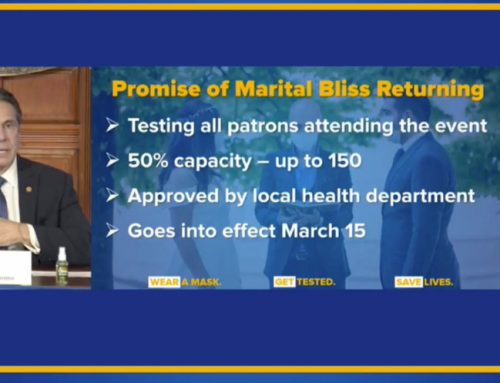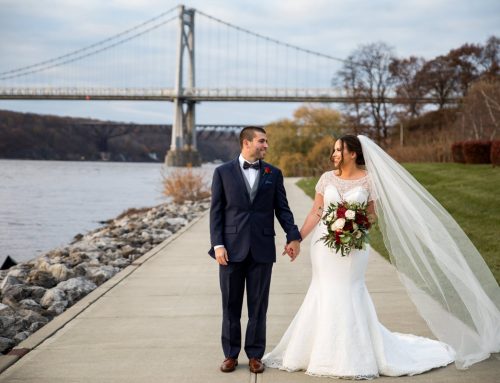Orange Country Club in Walkill, N.Y. was sold in March and renamed West Hills CC; former members are seeking deposit refunds but new owners say they were only required to pay off existing debt. Membership of the club is now less than half of its peak level in 2004.
(APR. 30, 2012)
Jeff Pomerantz, a former member of the Orange Country Club in Walkill, N.Y., expected a $1,500 refund after deciding not to renew his membership more than a year ago. But all he got was a check for $300 last spring, reports the Middletown, N.Y. Times Herald-Record.
“They said I’d get the money back over five years,” said Pomerantz, a full member for 13 years and a partial one for three. “When I heard that, I knew right away there was a serious problem, because they didn’t have the money.”
Pomerantz is among an indeterminate number of former members who have been unable to recover refundable deposits they made upon joining a club that would have been celebrating its 114th year this year.
Instead, the club has been taken over by new owners in return for having its debts paid.
“These are monies that are supposed to be segregated,” said Pomerantz, who believes the cash was tapped for expenses as the club slid dangerously close to bankruptcy. “It seems to me at the least, unethical.”
Philip Mynio, a former member who said he was the club’s accountant between 1983 and 2007, won’t be seeking the return of his $1,500.
“No, and I’ll tell you why: It’s not there,” Mynio said.
Assets of the Orange Country Club— the land, buildings and equipment — were acquired in March by the Bonura Hospitality Group and Fallkirk Estate. The club was renamed West Hills Country Club.
Joseph Bonura, one of the new owners, said that the Orange County Golf Club corporation (the former owner) was not acquired in the deal, which essentially involved paying off the club’s debts.
The unrefunded deposits included some called “capital bonds,” which could be used to maintain the property.
A bond reviewed by the Times Herald-Record left no doubt that the money was to be returned upon a member’s resignation or death.
The problem with that, though, was that the club went broke and its bonds were worthless, Bonura said.
The new owners believe they have no responsibility for the unrefunded deposits. In a spirit of goodwill, they’re extending discounts on memberships or restaurant meals over five years to holders of outstanding bonds.
“We’re just trying to do what’s right,” Bonura said. “This is costing us a lot of money, and we’re trying to work something out with whoever had a membership.”
Mynio, whose home overlooks the 17th green, isn’t anxious to rejoin the club. “I’m going to take a year,” he said, “play other courses and see what the situation becomes next door—to see if I want to be part of it or not.”
He said the former club’s financial shortfalls occurred because the leadership was not as fiscally conservative as the recessionary times required, and instead embarked on renovations, straining the club’s resources.
That led to the imposition of additional fees, which in turn eroded a membership that increasingly felt it wasn’t getting its money’s worth.
The club’s golf membership numbers have fallen to less than 140, from 315 (plus a waiting list of 28) in 2004.
One project that could have waited for a better economy, Mynio said, was moving tee boxes to lengthen the holes.
All of the greens were destroyed during the winter of 2010-11, leading to a $200,000 resodding that brought an additional levy on the membership, former 22-year member Ray Lewis recalled.
“I never heard of a golf course losing all of its greens” at the same time, Lewis said.
Mother Nature also dealt a second blow last year to the property, when Hurricane Irene and Tropical Storm Lee sent the usually tranquil Wallkill River over its banks, swamping the club’s signature bridge — which was built in 1926 by the builders of the Brooklyn Bridge — and burying sections of the course under layers of mud and debris. The new owners had to re-seed five fairways after silt covered them for months.
Operating as West Hills CC, the club is now offering an annual individual golf membership at $3,900, with an additional annual food-and-beverage minimum of $720.
In another twist related to the club’s transition that occurred in February, the former owners of Orange Country Club filed lawsuits in local and state courts seeking to collect nearly $22,000 of dues and fees from a half-dozen former members.
The President of the club, Skip Tetz, who signed the complaints, did not return calls from theTimes Herald-Record seeking comment about why a corporation no longer overseeing a golf course needs money.
Lewis was one of the members named in the lawsuits. The former ownership club wants $5,417.91 from Lewis, who argued in a court document that the club did not provide a usable golf course in 2011 as bylaws required.
“When the club opened for the new season on 4/1/11, there were no greens to play on,” Lewis said. “The club also lost approximately half of its playing surface due to the hurricane in August.”
Lewis said the club made no accommodation in its lawsuit for the lack of a playable course, or for the $1,500 he feels he’s owed for his bond.
Lewis blamed the club’s downfall on misguided leadership.
“They were so arrogant that they felt the end was never going to come,” Lewis told the Times Herald-Record. “There is a law called supply and demand. For $5,000 a year for a single member, you have to play a lot of golf just to break even.”
The club’s decline didn’t happen overnight, he added. “It was a long, slippery slope.”
And while Lewis has since joined the Otterkill Golf and Country Club in Campbell Hall, N.Y., he harbors two decades worth of fond memories at his former club.
“It’s a shame,” he said of its downfall. “When I joined, it was the social hub of the county.”




